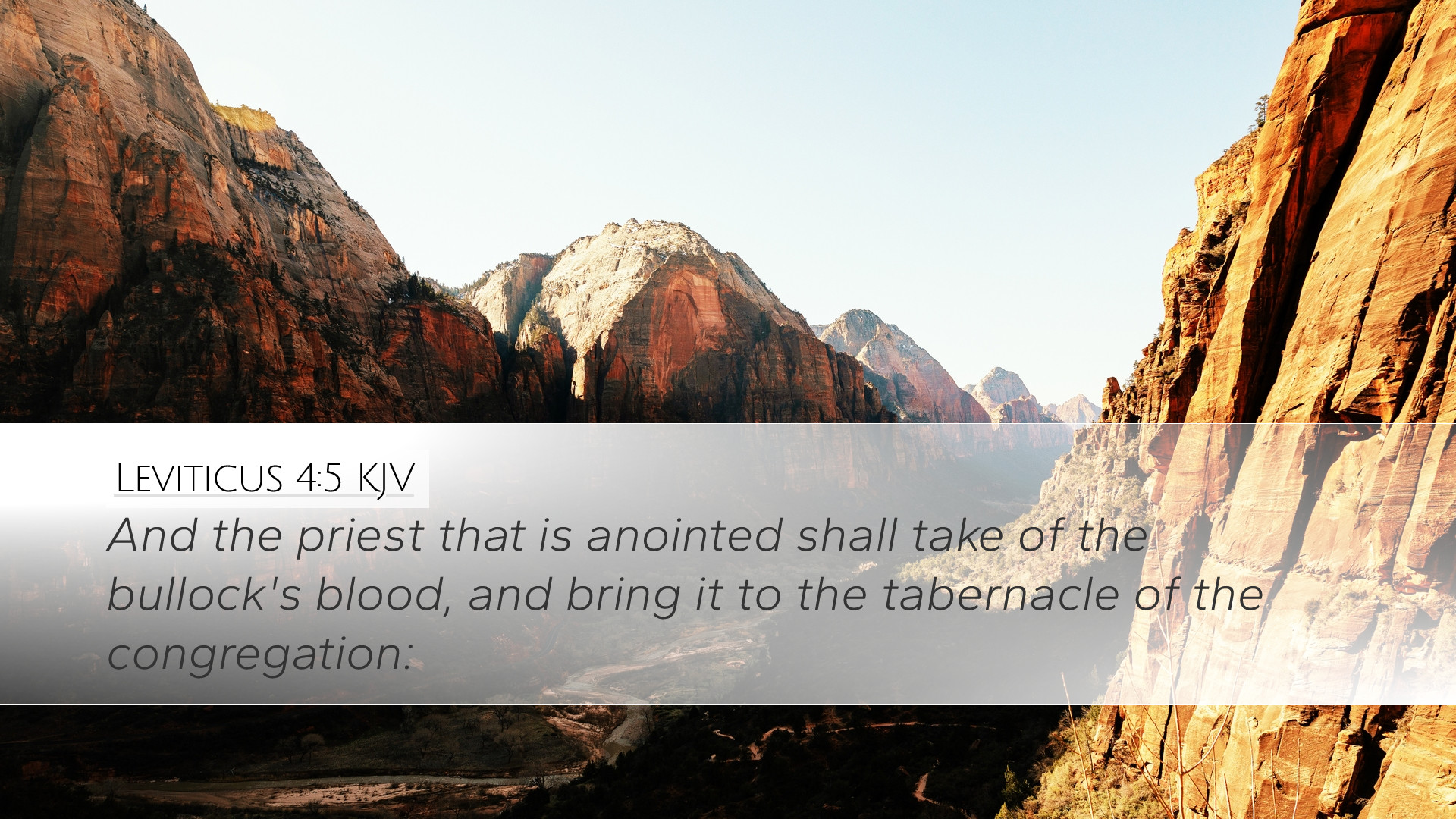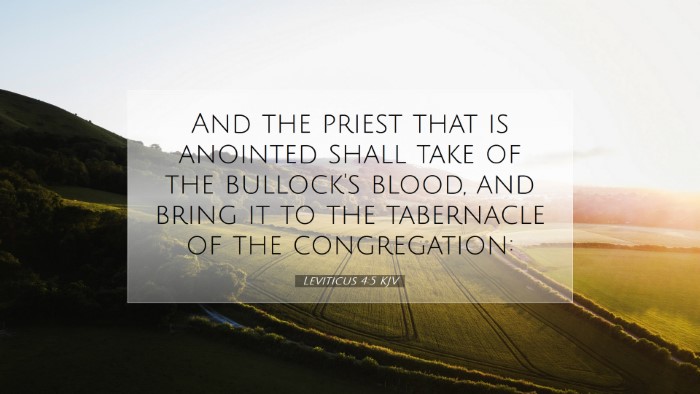Commentary on Leviticus 4:5
Leviticus 4:5 states, "And the priest that is anointed shall take of the bullock's blood, and bring it to the tabernacle of the congregation." This verse is part of the larger context of the sacrificial system outlined in the Book of Leviticus, particularly regarding sin offerings.
Understanding the Context
The Book of Leviticus serves as a manual for the priests and the Israelites, detailing the rituals of holiness, sacrilege, and the necessary atonements for transgressions. Chapter 4 addresses the process for when a priest or the community sins unintentionally.
The Role of the Anointed Priest
Matthew Henry elaborates on the significance of 'the priest that is anointed.' The anointed priest represents mediatorial functions between God and the people, embodying holiness and divine authority.
- Mediation: The priest acts as a mediator in offering sacrifices, showcasing God's mercy.
- Anointing: This signifies the consecration and setting apart of the priest for holy purposes.
The Symbolism of Blood
The act of bringing the bullock's blood to the tabernacle illustrates the seriousness of sin and its consequences. Albert Barnes explains that blood symbolizes life and is essential for atonement.
- Life in Death: The life of the bullock is given for the life of the sinner, signifying the gravity of sin.
- Access to God: The blood symbolizes the means by which the sinner gains access to God’s presence.
Rituals of Atonement
Adam Clarke highlights that the specific actions performed by the priest following this verse demonstrate a structured approach to atonement, suggesting that God desires order in worship and repentance.
- Confession: Before the offering, the sinner must acknowledge their sin.
- Sacrifice: The offering demonstrates the seriousness of the transgression and the need for atonement.
Theological Implications
The theological implications of this verse extend beyond its immediate context. It reveals aspects of God's nature, as well as man's need for reconciliation.
- God's Holiness: The elaborate process of offering illustrates God's holiness and the necessity of atonement.
- Human Sinfulness: This verse affirms the reality of sin and the need for a mediator.
- Christological Foreshadowing: Early interpreters, like Henry, have noted that Leviticus serves as a type of Christ, where Jesus becomes our ultimate sacrifice.
Practical Applications
For pastors and theologians, Leviticus 4:5 serves as a reminder of the seriousness of sin and the importance of confession and atonement in the life of believers today.
- Encouragement for Confession: It encourages believers to approach God in humility, recognizing their need for forgiveness.
- Value of Mediation: The importance of Christ, our High Priest, who mediates on our behalf, can be emphasized.
Conclusion
In conclusion, Leviticus 4:5 encapsulates vital truths regarding sin, sacrifice, and holiness. By understanding this verse in light of the commentaries, we can grasp the depth of God's mercy and the weight of human sin, leading to a more profound appreciation for the grace found in Christ.


